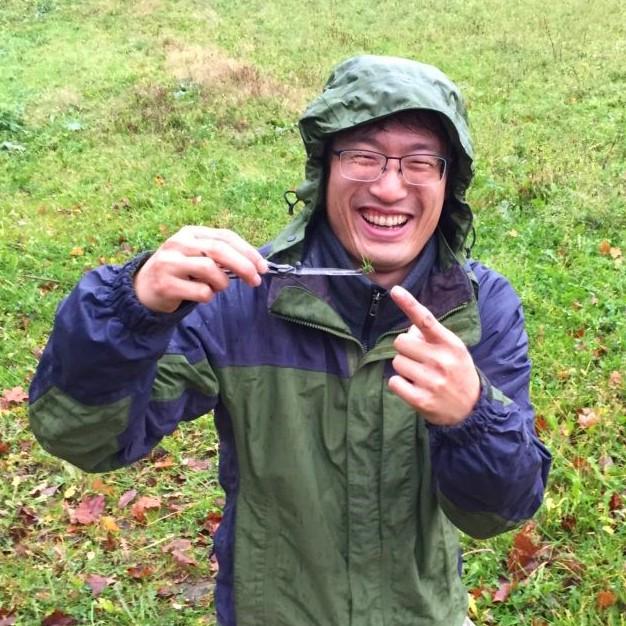Figuring out the genetic underpinnings of hornworts’ weird biology could help researchers boost agricultural output, use less fertilizer, and gain new insights into plant evolution

Credit: Boyce Thompson Institute
ITHACA, NY, October 7, 2019 — Hornworts are a little-studied, ancient group of plants with some very unique biology, including their methods of securing carbon and nitrogen. Unlocking these secrets may help researchers boost agricultural output and use less synthetic fertilizer, as well as provide broader insights into plant evolution.
Unfortunately, there are no genetic tools for determining the functions of hornwort genes, a situation that causes a bottleneck in the advancement of research into these fascinating plants.
Thanks to a $550,000 grant from the U.S. National Science Foundation’s Enabling Discovery through Genomic Tools (EDGE) Program, Boyce Thompson Institute faculty members Fay-Wei Li and Joyce Van Eck will spend the next three years developing robust gene transfer and editing technologies to help overcome this hurdle.
“We will be developing these tools that will then be accessible for the entire hornwort research community,” says Van Eck.
One unique thing about hornworts is their symbiotic association with cyanobacteria, which provides the plants with a source of nitrogen.
Other plants also form symbioses with microbes to obtain nitrogen, but those microbes take a lot of carbon in return, which can be costly to the plants. But cyanobacteria are photosynthetic and are thus perhaps not as reliant on the plant host.
“This relative independence makes cyanobacteria a promising, as yet unexplored partner for engineering symbiotic nitrogen fixation into crop plants,” says Li. If successful, such engineering could someday make crops less reliant on fertilizer for their nitrogen, which would have numerous environmental benefits such as less polluted waterways and associated algal blooms.
Hornworts also are the only land plants that have evolved specialized sub-cellular compartments within their chloroplasts, called pyrenoids, which concentrate carbon up to 50-fold. This carbon-concentrating mechanism essentially turbocharges photosynthesis, enabling hornworts to grow much faster than they otherwise would.
“A lot of researchers are trying to install a similar carbon-concentrating mechanism from algae into crop plants to boost their growth and productivity,” says Li. “Crop plants are functionally, structurally, and evolutionarily more closely related to hornworts than to algae, so we think it would be easier to transfer whatever we learn from hornworts to crops.”
At this point, however, the plant genes involved in the carbon-concentrating mechanism and the cyanobacteria symbiosis are completely unknown.
“I have a bunch of candidate genes that are involved in symbiosis and photosynthesis, but I cannot test those gene functions without a robust transformation or gene editing system,” Li said. “So developing these tools is what this NSF grant is about.”
Specifically, Li and Van Eck will use the grant funds to work out the most robust and efficient methods for transforming and editing the hornwort genome in a targeted manner.
“There are many different approaches to performing these genetic transformations and edits, and there are many different parameters within each approach,” says Van Eck. “It doesn’t matter to us which approach works best, we just want a robust system that is reliable and efficient.”
These tools will also help evolutionary biologists determine hornworts’ place in the plant kingdom. Along with mosses and liverworts, hornworts are bryophytes and thus lack vascular tissue. But no one knows which bryophyte is most closely related to vascular plants, such as lycophytes, ferns and seed plants.
“Having a model system for hornworts is really important to understand plant evolution,” Li said.
Ted Morgan, NSF EDGE program director, says, “This program allows research communities to address a grand challenge in biology and is part of a bigger effort within our field to better predict how organismal traits arise from genetic variation in natural contexts.”
“Building this fundamental understanding of how genetic changes are connected with organismal traits has a range of significant societal benefits that include predicting organismal responses to changing environments, the development of more effective conservation efforts, new medical approaches and improved crop yields,” Morgan says.
In addition to their appointments at BTI, Li is an Adjunct Assistant Professor and Van Eck is an Adjunct Associate Professor in the School of Integrative Plant Science at Cornell University.
###
About Boyce Thompson Institute:
Boyce Thompson Institute is a premier life sciences research institution located in Ithaca, New York. BTI scientists conduct investigations into fundamental plant and life sciences research with the goals of increasing food security, improving environmental sustainability in agriculture, and making basic discoveries that will enhance human health. Throughout this work, BTI is committed to inspiring and educating students and to providing advanced training for the next generation of scientists. BTI is an independent nonprofit research institute that is also affiliated with Cornell University. For more information, please visit BTIscience.org.
About the National Science Foundation:
The National Science Foundation (NSF) is an independent federal agency that supports fundamental research and education across all fields of science and engineering. In fiscal year (FY) 2019, its budget is $8.1 billion. NSF funds research in all 50 states through grants to nearly 2,000 colleges, universities and other institutions. Each year, NSF receives more than 50,000 competitive proposals for funding and makes about 12,000 new funding awards.
Media Relations Contacts: AJ Bouchie (607-288-2578, [email protected]) or Stephanie Meyer ([email protected]).
Communications Office
Boyce Thompson Institute
533 Tower Road
Ithaca, New York 14853 USA
To learn more about Boyce Thompson Institute (BTI) research, please visit the BTI website at BTIscience.org.
Connect online with BTI through Twitter, Facebook, Instagram and LinkedIn.
Media Contact
AJ Bouchie
[email protected]
607-288-2578
Original Source
https:/




